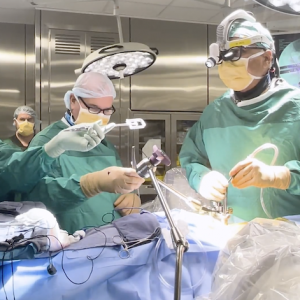Brain Health and Watching the News: How Much is Too Much?
Coconut Telegraph
SRQ DAILY FRIDAY WEEKEND EDITION
FRIDAY MAY 1, 2020 |
The coronavirus (COVID-19) pandemic and 24/7 news coverage have created a perfect storm for eroding our brain health and increasing our risk for brain illness, like anxiety. It’s understandable that we became huge consumers of news during this global crisis. Initially, we wanted to know what the coronavirus was, what the symptoms were, and how it was spreading. Now, weeks later we are wondering how we will successfully return to normal and what does our new normal mean? How will our children and our jobs and the economy be impacted? And will we or our loved ones be exposed to the virus? We have so many questions and we are searching for answers.
Harvard colleague, Jacqueline Bullis, PhD, a clinical psychologist in McLean Hospital’s Center of Excellence in Depression and Anxiety Disorders, said in a recent article that COVID-19 has brought a level of uncertainty that is unprecedented for most of us. When uncertainty is high, our brains seek as much information as possible as we attempt to regain control.
But while staying glued to the television or constantly refreshing our social media feeds may help us feel slightly less anxious in the short term, according to Dr. Bullis these behaviors ultimately increase our anxiety eroding our brain and physical health. The more we try to gain control, the more anxious we feel. It is impossible to be 100 percent certain of what the future holds in general and regarding COVID-19. Therefore, it is imperative that we do all that we can to promote and protect our brain and body health, fight brain and physical illness and strengthen our resilience to life and COVID-19.
WHAT YOU CAN DO TODAY TO PROTECT YOUR BRAIN HEALTH
In the article from McLean Hospital, Dr. Bullis offers these suggestions for avoiding too much news:
Control What You Can: Your schedule has been disrupted by COVID-19 possibly leaving you with more time than ever to watch the news or follow social media. Changes to your routines and the impact of physical distancing are likely to lead to increased screen time. This heightened exposure can decrease your brain health and increase your risk for developing symptoms of brain illness, including anxiety, fear, anger, loneliness, and other negative emotions. The Brain Health Initiative suggests practicing a brain healthy mindset and accepting what is beyond your control. Remember what we discussed last week about reframing and refocusing your behaviors on factors you can manage, such as frequent hand washing and practicing physical distancing. Further, take good care of yourself by practicing the brain healthy behaviors we have discussed this past month – maintaining your routines, eating well, exercising, getting enough sleep, thinking positive thoughts, and staying connected with loved ones.
Step Back from the News: While some media consumption is fine, Dr. Bullis recommends taking steps to limit your exposure to troubling news: Determine what information is helpful in learning ways to stay safe versus what is unhelpful and can lead to more anxiety.
Be selective about the media. Stick to trusted sources, such as the World Health Organization and the Centers for Disease Control and Prevention.Limit your time spent with COVID-19 news. Bookmark trusted sites and check them for updates just once or twice per day. Remove anxiety-provoking information from your social media feeds. If people you follow are filling your feeds with upsetting information, mute or hide their posts.
Good News Is Still Out There: To promote your brain health, there are ways to engage with media to help offset feeling anxious, lonely or upset: Follow social media accounts that focus on uplifting news. Try Instagram’s @goodnews_movement and @upworthy or YouTube’s Some Good News, hosted by John Krasinski. Create a group text with friends or family to share uplifting news stories with each other. Use Netflix Party, to watch shows remotely with friends.When reading or viewing news stories, be aware of how they make you feel. If the news you’re consuming isn’t providing information that educates you on how to stay safe, it might contribute to fear and anxiety.
McLean Hospital in Belmont, Mass, is the largest psychiatric teaching hospital of Harvard Medical School. Read the full article here.
« View The Friday May 1, 2020 SRQ Daily Edition
« Back To SRQ Daily Archive











